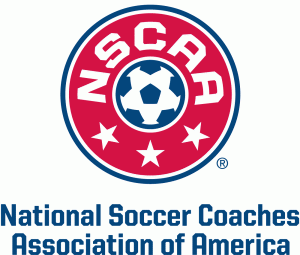What are you buying when you pay for a coach?
Editor’s note: This continues the conversation from Dr. Lebolt’s last post, “How much is a good coach worth?“
It’s more important than ever that team parents and administrators who are making the decision about finding and hiring a coach know what they’re getting. Your kid is a precious commodity; you want the best for him or her.
But you also expect to get what you pay for. Do you know the level of training and education your coach has? Ask. Then, check it out. Here’s how.
Step 1. Find out from prospective coach what license, certificate, or diploma they hold and from what certifying organization. Be sure you know the coach’s full name, date of birth, and the state issuing their license, and if it is an F, E or D license. Don’t be shy about asking. If he/she can’t provide this information, are you really interested in hiring them?
Step 2. Who are the certifying organizations? This is where things get complicated and the fun begins, because there are a number of certifying organizations out there. This is the result, I believe, of the growing pains in the coaching profession. The same thing happened when the health and fitness industry, my area of expertise, went pro. In the beginning, we had former pro athletes who only knew how to train the way they had been trained, running the show. Then, a multitude of certifications sprang up for every specialty and offered by every organization. Send in your money and we’ll mail you a certificate! (I didn’t.) Now the major sports associations are at the helm, offering quality training and certifications you can bank on.
In the U.S., two main organizations provide the gold standard for coaching education, the United States Soccer Federation (USSF), also called U.S. Soccer, and the National Soccer Coaches Association of America (NSCAA). U.S. Soccer issues licenses (emphasis: learning and application). The NSCAA issues diplomas (emphasis: education and coaching connections).
Step 3. Inquire. U.S. Soccer is the parent to the state soccer organizations in the coaching education world (whereas the states “report to” U.S. Youth Soccer for player registration). Coaches who have earned F, E or D licenses, hold them through their state organizations, with the “D” License issued with a “State” or “National” designation. The “National D” means the candidate is free to enroll in U.S. Soccer’s “C” course after the standard one year waiting period between licensure. The “State D” means the candidate has passed their “D” license, but may not enroll for the “C.”
To confirm which licenses a coach possesses, you must contact the state association where they took the licensing course. In Virginia, for instance, I emailed the VYSA (Virinia Youth Soccer Association) state office and their administrator searched her records for the coaches I was interested in. Find your state office contact here.
 U.S. Soccer presents an organized curriculum for the aspiring coach who wishes to go beyond the D license, listed here. Candidates may work their way up through National License progression: National E, National D, then C, B and A levels. Additional licenses include: National Youth License, Adult License, Goal Keeping License and Fitness License.
U.S. Soccer presents an organized curriculum for the aspiring coach who wishes to go beyond the D license, listed here. Candidates may work their way up through National License progression: National E, National D, then C, B and A levels. Additional licenses include: National Youth License, Adult License, Goal Keeping License and Fitness License.
To confirm the status of a U.S. Soccer coaching license other than F, E, or D email: [email protected] with the coach’s name, DOB if you have it, and what license level they claim to have. Be aware that few licenses have recertification or continuing education requirements. U.S. Soccer does have a coaching education relationship with the NSCAA and encourages continuing education credit through NSCAA-offered events and training.
If a coach has a license from outside the U.S., he/she can contact U.S. Soccer to determine the equivalent U.S. proficiency and U.S. licensing.
The NSCAA is focused on educating, training and connecting coaches and is holding their national convention next month in Philadelphia. (I will be attending for the first time. If you’ll be there, look me up!) The NSCAA has quite a slate of educational offerings and resources. Follow this link if you’d like to see the menu. It’s so complex, they have a survey tool to help you know where to start.
The NSCAA offers diplomas in six tracks: beginning, intermediate, advanced, goalkeeping, high school and director of coaching. In the ‘Advanced track’ — where our paid coaches would likely hold diplomas, the progression goes: National, Advanced National, Premier and Master Coach. You can even earn an Academic Masters degree in soccer coaching if you’re so inclined. To confirm training completed through the NSCAA email Eric Dodd, education program coordinator for the NSCAA: [email protected].
So, in short, to confirm credentials:
- State level D, E, F, contact your state coaching association
- U.S. Soccer National E, D, or C, B, A and specialized licenses: [email protected]
- NSCAA diplomas of all types: [email protected]
Can a coach be good without a license?

I have on good authority that World Cups have been won by teams with a coach who is unlicensed. So, yes. But there are means to check if the coach you are considering is telling the truth about his/her license. This is an important protection for all those great coaches out there who are spending time and money to obtain the highest levels of coaching certification. If they say so, check it out. If they have it, they shouldn’t worry. But be sure you get your facts straight. With such a complicated system, misunderstandings will abound.
U.S. Youth Soccer also offers a “National Youth License” course which carries a solid reputation and is even required by many clubs and states for coaches applying for full-time jobs or as coaching education instructors.So, along with credentials, what else should we look for if we are in the market for a good coach? Probably, coaching experience and/or playing experience, wins and losses, tournament performance, other specialized or applicable training in health and sport, and of course, referrals and recommendations from people we trust.
Personally, I would look for one more thing: commitment to keep learning the game. Because the “best practices” keep changing and there are a lot of folks with great creativity out there working to make it better. They’re a collegial bunch, those coaches. They even share ideas with their opponents…after the match, of course.
You know, with all this attention being given to ranking teams and ranking players, I wonder what would happen if we ranked our coaches. That could really drive up the prices, but you’d know what you were getting for your money. Or would you?
SOCCERWIRE MARKETPLACE
- FC Bayern Soccer Camps - $30 PROMO CODE: BMSOCCERWIRE
- Real Colorado Cup 2026
- Join a College Coaches Showcase Camp Today
- MICFootball Punta Cana 2026
- Dana Cup Hjørring 2026
- 15th Annual Loudoun Soccer College Showcase
- OFFICIAL FC BARCELONA SOCCER CAMPS - PROMO CODE: FCBSOCCERWIRE
- New England Copa Surf 2026
- Adidas National Cup 2026
- Boston International Cup Memorial Day 2026













